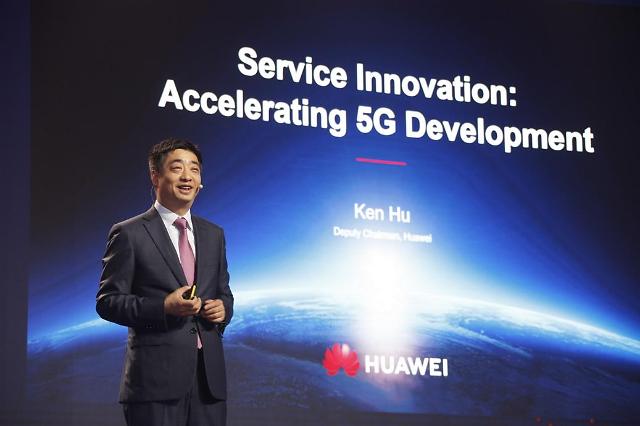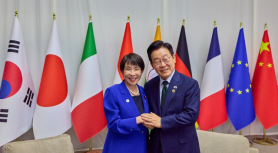
[Courtesy of Huawei]
SEOUL -- In a country which has established a 5G network for the first time in the world, Huawei highlighted its presence through business cooperation with three promising domestic tech firms, about two months after the Chinese technology giant opened a 5G technology lab in Seoul to support partner companies.
Huawei said Friday that it has signed a memorandum of understandings (MOU) each with Thirteen Floor, the producer of cinematic virtual reality content based on 360 shooting technologies, EnGIS Technologies, which provides software technologies for connected cars and autonomous driving, and SP Technology, the provider of mobile solutions.
"The MOUs are intended to contribute to making South Korea's the 5G ecosystem of South Korea, which commercialized 5G for the first time in the world, healthier as a member of South Korea's 5G and ICT industry ecosystem and a socially responsible company," said Meng Shaoyun, CEO of Huawei's branch in South Korea. "Huawei will continue our cooperation with diverse Korean companies to create South Korea's 5G ecosystem now and in the future."
The agreements were signed at Huawei's 5G lab that opened on May 30 in Seoul after the Chinese company was placed on a list of foreign firms barred from receiving components from U.S. exporters without a license. Huawei has tried to establish three 5G technology labs in Asia, Europe and the Middle East and create a 5G ecosystem through collaboration with local companies.
Through its 5G lab, Huawei hopes to provide an optimized test environment and free services to South Korea startups and partner companies, focusing on cloud, virtual reality (VR) and augmented reality (AR), connected cars, robots, and smart manufacturing.
Thirteen Floor and Huawei agreed to discover new service opportunities. Based on the optimal 5G network environment provided by Huawei's 5G lab, the two companies would develop VR services and test service quality.
EnGIS and Huawei would exchange views on various services that can be applied to C-V2X for autonomous driving and create synergy based on their core technologies related to self-driving. C-V2X communicates to a cellular network for cloud-based services like navigation and infotainment. It uses a direct link to communicate with other vehicles, smart infrastructure and pedestrians.
Through cooperation with SP Technology, Huawei will launch an open lecture program in October on 5G and ICT technologies for small and medium-sized enterprises, workers and students.
South Korean firms offered commercial 5G services for smartphone users in April. LG U+ was the only South Korean mobile carrier to pick Huawei's 5G equipment. Despite U.S. allegations that Huawei's equipment and backbone network infrastructure has security risks which could lead to leaks of vital information including personal and industrial information, LGU+ has shown trust for the security of Huawei's 5G equipment.
Copyright ⓒ Aju Press All rights reserved.



